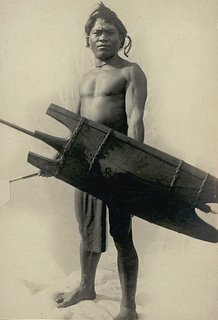The Wealth of the Arroyos
First of Three Parts
by Malou Mangahas
A FORTNIGHT ago in her ninth State of the Nation Address, Gloria Macapagal Arroyo fired sharp, staccato broadsides at her critics, and in a tone bold and boastful declared: “I am falsely accused, without proof, of using my position for personal profit.”
There isn’t a day,” she said, “I do not work at my job or a waking moment when I do not think through a work-related problem. Even my critics cannot begrudge the long hours I put in.”
“A president must be on the job 24/7, ready for any contingency, any crisis, anywhere, anytime,” Arroyo continued, because “the people deserve a government that works just as hard as they do.”
By all indications, President Arroyo has worked very hard. In fact, she has worked so hard that during her first years as president, official records show her declared wealth as growing faster, and by amounts much bigger, than the combined growth in the declared wealth of three presidents before her.
The late President Corazon C. Aquino’s declared net worth grew by only 4.8 percent from 1989 to 1992. By comparison, Fidel V. Ramos’s rose by 34.2 percent from 1992 to 1998, and Joseph ‘Erap’ Ejercito Estrada’s, by 7.2 percent from 1998 to1999.
PCIJ reports in 2000, though, revealed that the mansions and other assets held by Estrada and his mistresses were worth multiple times more than his declared net worth. Less than a year later, Arroyo came to power after a botched impeachment trial of Estrada for unexplained wealth triggered a people-power revolt.
Exponential growth
But the lessons of Estrada’s downfall seem to have been lost on Arroyo. In her eight years in office, Arroyo’s declared net worth more than doubled (pegged only on the book or acquisition value of her assets), from P66.8 million in 2001 to P143.54 million in 2008. The increase of P76.74 million represents a growth rate of 114 percent.
If her statements of assets, liabilities, and net worth (SALNs) are plotted from 17 years ago when she first served as senator, Arroyo’s declared wealth charts an exponential growth of 2,000 percent.
Her net worth in 1992 was only P6.73 million; for eight years before the presidency, her wealth grew by a heftier P60.07 million or a rise of 890 percent.
Since she got into Malacanang in 2001, Arroyo added P10.97 million to her net worth year on year on average, or 20 times more than her lawful gross salary as president of only P45,000 a month.
If various allowances are thrown in, her monthly pay would total at most P100,000 or P1.2 million a year before tax. Yet even then, this represents only 10 percent of the P10.97-million average annual increase in Arroyo’s net worth since 2001.
Arroyo’s SALNs, however, offer few clues on how she raised the big difference, or whether she has other lawful sources of income. Since 2001, the president has apparently taken the path of token compliance instead of going for full disclosure in form and substance of her assets and liabilities, according to the Constitution and law. As a result, her SALNs in the last eight years have been remarkably full of gaps in data.
For sure, they pale in comparison to the detailed documentation that former Presidents Aquino and Ramos exemplified in their SALNs. Both Aquino and Ramos even attached to their SALNs photocopies of their income-tax returns (ITRs) and checks attesting to payments they made with the Bureau of Internal Revenue. Arroyo did not attach her ITRs.
Not a good example
At the very least, Arroyo’s SALNs may not pass as what should be expected from the chief executive, who ideally sets the example for all of the country’s 1.5 million civil servants.
Comments Karina Constantino-David, who worked as Civil Service Commission (CSC) chairperson under Arroyo: “When a high official like the president is unable to fulfill the responsibilities expected of her according to the constitution, how can she convince other public servants to take seriously the dictum ‘Public office is a public trust’?”
In recent years, token compliance with the law on filing SALNs had caused mayors, military officers, customs and revenue officials, and other civil servants of less senior status jail terms, stiff fines, and dismissal or suspension from work.
Failure to disclose properties in the name of his wife and children, for instance, earned Armed Forces general Carlos Garcia a two-year stint in jail.
While in the National Bilibid Prisons for murder and rape, former Calauan, Laguna Mayor Antonio Sanchez was also fined P5,000 per year for four years for what lawyers say passes for perjury by omission: defective compliance or non-compliance with the SALN law. More details
Labels: Corruption, Gloria Arroyo, Ill-Gotten Wealth





 Deviant Art
Deviant Art